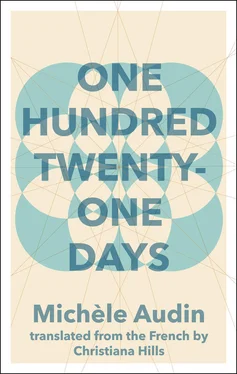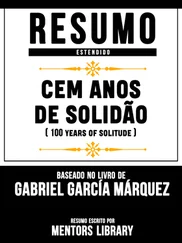Der eine sprach: “Wie weh wird mir,”
which translates as, “The one said: ‘How I suffer,’” and which could indeed be useful to know. In this way, he found answers to some of the questions he had about war. He also took Latin and Greek. He really liked poetry and would often recite another poem to himself, which said:
You’ll be a Man, my son!
You see, he thought that this poem was speaking to him, because it said “you,” just like this story is meant for you, Best Beloved.
At school, no one spanked him. The teachers loved him and pampered him, especially the German teacher. So he was happy. Yet you must know that even though he really liked German, his favorite class was mathematics. That was also where he excelled the most. In mathematics, you were allowed to ask ever so many questions. And even to come up with new ones as soon as you found the answers to the old ones. And he loved numbers, logical reasoning, and even the most complicated figures in geometry.
And then he was fifteen. So his teachers came up with the idea of having him prepare for the exam to get into the École Polytechnique, which was, they said, the greatest school in Paris and the world. This couldn’t be done at the secondary school in the big city in the faraway land. The teachers wanted him to go to Paris, which is the largest and most beautiful city in France, as you know.
So the teachers wrote to the schoolteacher at the edge of the Saloum River; the schoolteacher went to see the boy’s parents on the peanut plantation; the boy, who had taken the steamboat and the pirogue to spend the summer with his father, his mother, his brother, and his yellow dog, was spanked from all sides; his little brother was also spanked for good measure; the yellow dog licked his face affectionately; his teachers found a scholarship; the father put his belt back on; and in the end, everyone left in single file towards the banks of the Saloum. There, the boy, who was a little swollen, climbed into the pirogue, and the chickens were pushed out of the way to clear a comfortable place for him.
You can’t go all the way to Paris just by taking a pirogue down the Saloum River. After the pirogue and the steamboat, the boy still had to get on an ocean liner, then a train. But this is perhaps where an evil fairy appeared and Christian fell gravely ill. It was an illness with a fever and delirium, and so he had to be taken to the big hospital in the big city. He stayed there for several weeks, while the boats he didn’t get on left for France. It looked like he was going to die, but as you know, children don’t die in fairy tales. While he was sick, there were times when he had nightmares filled with demons, like the ones the priest in the village on the banks of the Saloum used to describe in Catechism class. And there were also more peaceful times when he thought about geometry problems and also a little about his nurse. In the hospitals in big cities in faraway lands, the nurses were actually nuns. The one who was taking care of the boy wore a cornet on her head, a wooden cross, and all those other things nuns wear. You had to call her “sister,” but that didn’t prevent Christian from seeing she was just a girl, and he liked her very much. At that time, boys and girls didn’t go to the same secondary schools. And so this boy had never met any girls. White girls, of course — there were black girls on the plantation, on the banks of the Saloum, but at that time, Blacks didn’t count.

And here’s where the setting expands even more, where other characters get involved in the story, which is going to become so complex that the fairy tale, with its good and evil fairies, will not be enough to tell it. The story will have to find other forms, other methods. But know this: little Christian’s life is far from over — it will last over one hundred years. Around him, others will live and die, which we must also take into account. For the rest of the novel, when he will have become a man, Christian needs a last name — first names by themselves only work for children. So it’s time to choose one for him, Mortsauf, maybe, or Mortfaus or Morfaust…

The story isn’t over but the fairy tale ends here, at the moment when young Christian, fully recovered, climbed bravely up the gangway of the ocean liner while thinking about his yellow dog. And the ocean liner, which was called Afrique , carried him over the Atlantic Ocean and the Mediterranean Sea, past the Canary Islands, Morocco, and Spain, to the railroad at Marseille. Then it was the Gare de Lyon and the greatest city in the world, with its coachmen, its Champs-Élysées, its Eiffel Towers, its numbers, its polytechnical schools, its theorems, and all of its pretty girls who reminded him of the pretty nun who had taken care of him at the hospital.
CHAPTER II. Diary of Marguerite Janvier (1916–1917)
February 2, 1916
At the hospital again today, my sad contribution to the war effort. A nurse… what else can we do, we women, while all of our valiant men are at the front? To give myself courage, when I wake up and cross Paris on foot in the frosty night towards the Val-de-Grâce hospital, I only need to think of their sacrifices. What suffering!
Today, a young man came to us, almost a child, who left the hospital three weeks ago. That had already been his second injury; we gave him a few days of convalescent leave, then he left again for the Chemin des Dames and was injured once more. This time it was shrapnel — they had to amputate his right leg when he was still in the ambulance. And here, we trepanned him. As stoic as I must appear, my heart tightens when I think about him. At least they won’t send him back to the front this time. I pray that God grants courage to his poor mother, because she’s going to find him in such a state! And with only one leg, how will he be able to go back to working on a farm?
February 10, 1916
The Germans are barbarians. There is no other word to describe these bombardments, these injuries, these mutilations! Barbaric! All this suffering in order to satisfy the monstrous pan-German ambition! The most unbelievable thing is that these monsters call themselves Christians. They worship a god of terror and dedicate these sacrifices to him. Fortunately, we too have powerful weapons, thanks to which God will help us to conquer them and to defend both civilization and Christian values.
I spoke about this with a history student who was leaving our unit. He had been trepanned, his head injury had been treated, but he left with an empty shirt sleeve. He was crying as he told me about his best friend, who jumped out of a trench and was killed, at age nineteen, when he would have gone on to become the greatest poet of the century. When it comes to the Krauts, he concluded, you have to give them an eye for an eye.
The house is freezing. Mama is trying in vain to get the stove repaired.
February 29, 1916
Lots of snow these past few days.
This year has one more day than usual. For me, it’s one more day of war. They’ve been bringing injured men from the front — the battle rages in Verdun.
Today one of the wounded men in the unit was telling everyone about the date, February 29. 1916 is a leap year, and according to him, there are magic numbers in it. He’s a Jew, but also a former polytechnician who is very well raised and amiable. He has only been here for a few days and probably isn’t going to stay for very long, because his injury is pretty minor: a shell blew up near him and his head collided with a large stone. The problem is, all of his comrades were killed, which is also terrible for him, the sole survivor. I know this because the major told me, but the patient himself doesn’t talk about it. It’s true that the men here hardly speak about what they’ve gone through at the front. Usually, he remains peacefully in his corner, studying. He cries from time to time while writing mathematical formulas, but today he seemed rather excited and was looking at me in a strange way. Oh, that his god would give him the strength to bear his sadness!
Читать дальше













